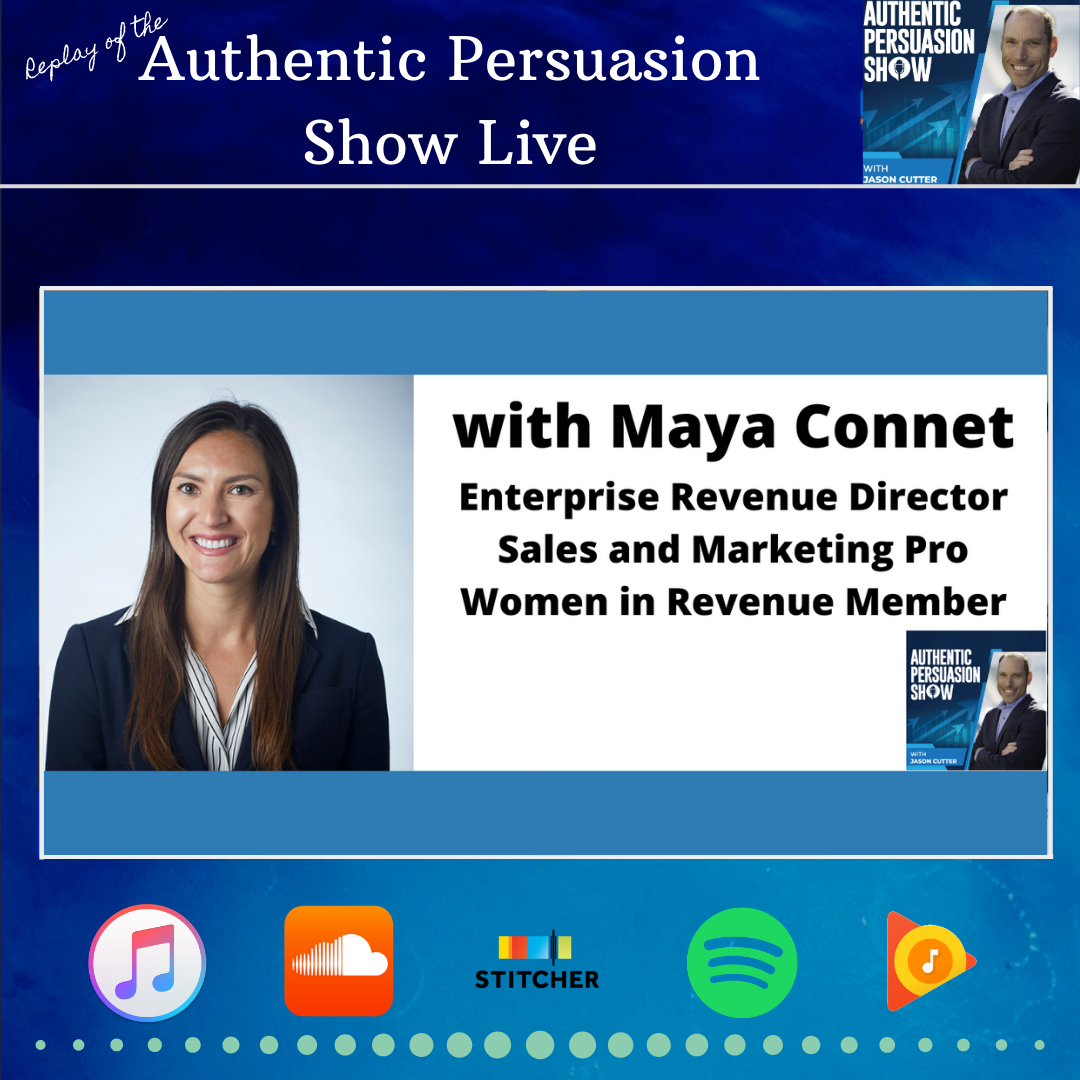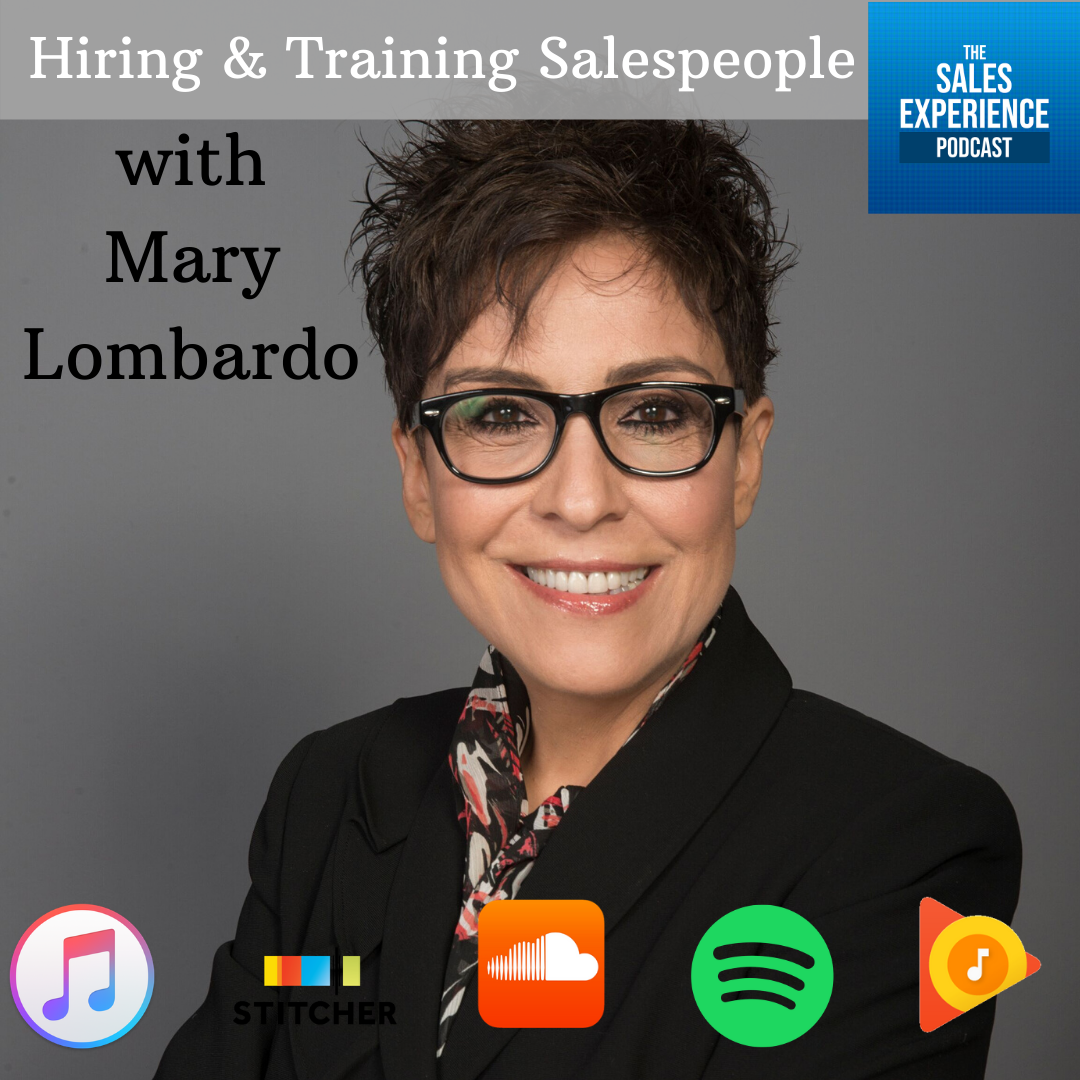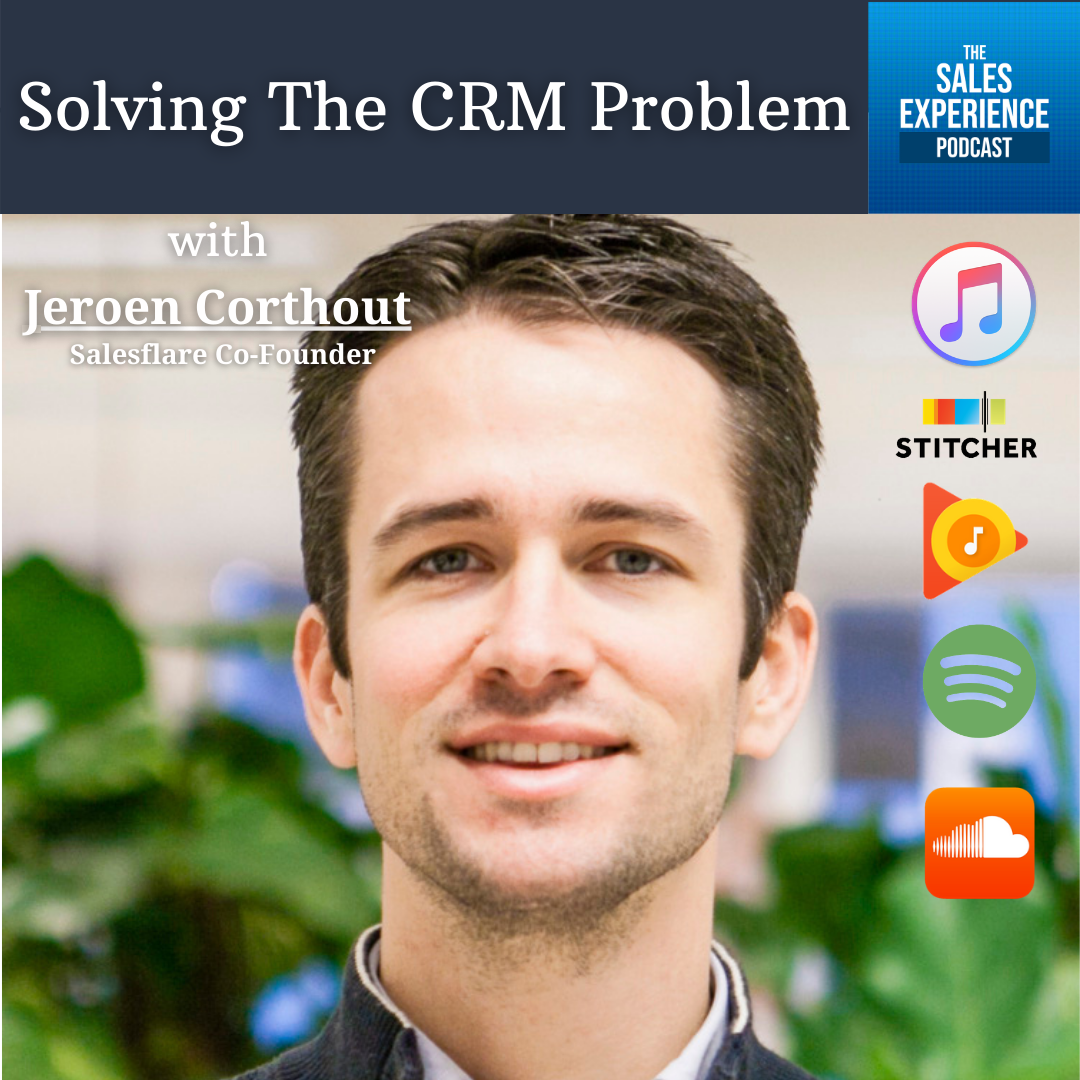Show Notes
This is part three of the conversation I had with John.
In Part 3, John and I talk about:
- Selling benefits and solutions, not products
- Culture books
- The right priority order for a company to focus on
- Do your customers know what they will get each time?
Download The Power of Authentic Persuasion ebook
Enroll in the Authentic Persuasion Online Course
Connect with Jason on LinkedIn
Connect with John on LinkedIn
John’s Info:
John Waid is the Founder and CEO of C3 – Corporate Culture Consulting, a firm specializing in aligning an organization’s culture with its strategic goals.
He has worked in sales and marketing at Pfizer, PepsiCo, Nestle, and Chateau Ste. Michelle Winery. During these experiences, he developed a heightened awareness of the indispensable role people’s attitudes play in implementing effective processes and procedures.
He is an author, speaker, facilitator and thought leader in the area of Corporate Culture and its positive impact on people and companies. He was born in Mexico City, has lived in 5 countries and speaks fluent Spanish, Portuguese and English. He is an author, keynote speaker, blogger, soccer fan, wine enthusiast and proud dad. He currently makes his home in Atlanta.
Contact Info:
Email: [email protected]
LinkedIn: https://www.linkedin.com/in/johnwaid/
Website: https://corporatecultureconsulting.com/
Best Selling Author of Reinventing Ralph, about culture-driven sales
Some of John’s Published Content:
•https://pilotonline.com/inside-business/news/columns/article_b85909c8-4429-11e9-84e6-73007b0239e4.html
•http://design.hr.com/ExcellenceEssentials/HCM/2018/AUGUST/page_13.html
•https://www.hr.com/en/magazines/hcm_sales_marketing_alliance_excellence_essentials/november_2018_hcm_sales_marketing_alliance/sales-culture-eats-strategy-for-breakfast_jofamu1i.html
E133 – Transcript
Jason: Welcome to the sales experience podcast. My name is Jason Cutter. So glad that you’re here. This is part three of my episode conversations with John Waid. Make sure to check out the previous two episodes to catch up to where we’re at now in this conversation. And without further adieu, jumping in right now. Here’s John and I talking about sales and culture.
John: Start with values. Build your constitution. You know, Ralph went on to be a very successful person based on some work done in the book and the bookstore, uh, read the book. Like I tell my daughter when she told me she only read half the book in high school, I stopped the car and I said, you’ll finish the whole F and book because that’s what you have to do. That’s what you have to do to be successful. That’s accountability. You need to read the book. So.. And finish what you started. That’s right.
Jason: Well, and I think it’s an interesting point you mentioned because sometimes salespeople feel like maybe what they’re selling doesn’t matter or they don’t think it matters or they’ve gotten themselves into selling. Some widget that’s really not making a difference. I think you said kind of, even when you sold gum and Rolaids and all of that is to make sure that there is a benefit for what you’re selling and find that benefit. Most things have one, is it really there or is it like this false benefit because someone invented something and is it really benefiting or not? And if you can’t find that benefit or you don’t believe in what you’re selling, go do something else. Go find something else to sell or stop being in sales because it just fundamentally won’t ever work if you don’t believe in what you’re selling and how it’s helping the other person in one way or another, either get them out of trouble or get them out of a bad situation or help them get something they want or just into a better place, small or big, you know, if you don’t believe in it, just get out.
Jason: And, uh, you know, and I think that really goes into the value discussion too, right? So if you don’t believe in the values of a company or there are no values, if you’re a salesperson and you just feel like it’s just a, a boat adrift and there’s, you know, no idea what’s going on, you know, look at what impact you could make and could you help drive the conversation to values or introduce the company to people like you and I to help fix it from the bottom up or go find one that knows where they’re going and get on that, you know, successful boat that you know, everyone’s rowing in the right direction.
John: You got it. And it doesn’t have to be any more complicated than that. I recommend that everyone either get themselves a culture book, either the culture book that I just described, which is the re-inventing Ralph. Or you can develop your own culture sales culture book. Make sure you get a consultant that knows what they’re doing to help you with some assessments, with some culture workshops, and then work on the behaviors that you want. That’s where you should spend your training dollars. Don’t invest in value selling, integrity, selling the challenger model or any of those until you do the basic work of developing your values and behaviors. Then pick a model that helps you to further develop those behaviors in a model process thing. So you need to start with the values and the behaviors, the purpose, and then work on the structure, which is your process.
John: And then get into sales strategy. We tend to start with money first, customers second, and employees third. We need to start salespeople first, get them trained, work on values and behaviors. Then introduce the customer and the processes of how to get good service out there, how to get good products out there. Then invest and then you’ll get more money. Because if your people aren’t happy, your salespeople aren’t doing the behaviors you want, your customers won’t be happy. And if the customers aren’t happy, you’ll make less money. You’re definitely not optimized then. No. So let me ask you this question. There’s a culture driven company that I’m thinking of in the fast-food business. What would be a culture driven company out in your area of the country? Out in California.
Jason: Fast Food, not beverage but fast food. So not a Starbucks but like an in and out burger.
John: Yeah. See we, I didn’t even have to go further than that. So does in and out burger make more money than McDonald’s?
Jason: I don’t think so, but I don’t know a lot of their metrics.
John: Okay. So they do make more money not evolve the McDonald’s per customer, per customer, per location. So, uh, in my neck of the woods in Atlanta, we’ve got the headquarters for Chick-Fil-A. They sell 5 million per store and Kentucky fried chicken sells a million. Kentucky Fried Chicken’s what I call a strategy-driven company, a money-driven company. And Chick-fil-A is a culture driven values and behaviors driven company. Cause they spent, they spend money on the values and the behaviors of their people. They have the, it’s my plus two attitudes, 5 million to 1 million. So if you’re not investing in sales culture right now, if you’re investing in processes or strategies, I would ask you to rethink it and to start, it doesn’t cost a lot of money to work on culture. It’s more a will to work on this. And then, you know, consulting is cheap compared to the alternative. If I could make 5 million hiring a consultant versus a million by not hiring one, what do you think we should do?
Jason: Yup. And I think that’s interesting, especially the Chick-fil-A Kentucky fried chicken example, because it is so culture value, mission-driven, and that goes from the top down. And then people appreciate, obviously you’ve got to have a good product, you just can’t have a crappy product and rely on mission and values and culture. You got to have a combination of it, but you can actually have a mediocre product. Right? It’s an amazing culture that people still are attracted to customer wise. And that’s how I feel about some of the brands you’ve mentioned, which have a really strong culture. And I don’t think their product is amazing in any way, but the people who loved them loved them, say in and out burger. I know this is controversial. Having grown up in California, I don’t think it’s amazing, but in and out burger you drive past any time of the day we’ll have a ridiculously long line and I think it’s good and you know what you’re going to get in the culture just feels different. I don’t think the product is amazingly different in, you know, relative to wanting to wait that long, but it’s just culture. Just feel like it’s a, it’s a different experience when you go to one and you know how everyone seems and it’s like exciting to see kind of like going to a Krispy Kreme, right? It’s like it may not be the world’s best donut, but just the culture and the way everyone is.
John: Right. You want to create a great culture and you want to make sure your bathrooms are clean. I had a friend of mine that once told me, I have a great culture, John. I said, your bathrooms are dirty. You don’t have a great culture and produce great products. You don’t have a great culture because your people need to be cleaning the bathrooms. If you go into in and out, their bathrooms are clean. If you go into Chick-fil-A, their bathrooms are clean. I’m sorry. That comes from behavior and from the top down it does. And if you, McDonald’s gets the burger out just as quick as, or quicker than in and out. So it’s not a process issue. Certainly not a strategy issue because they’ve got beautiful strategies and you know, of how to get you to buy lots of burgers and lots of chicken.
John: So really the competitive advantage of these companies that folk is really culture. It’s really the people, the employees, these companies like Southwest Airlines, Chick-Fil-A in and out. They invest a lot of money in training and development, on values and on behaviors. If you go on Southwest Airlines, you ask them a pilot or any staff member what their values are, they’ll tell you right away what they’re validating. Yeah. If you go into McDonald’s and us, somebody with the values are at McDonald’s, I think you’re going to get a blank stare back and again, so we’re talking, maybe I’m wrong and if I’m wrong, McDonald’s, please forgive me if I’m not wrong, please hire me.
Jason: What I’ve noticed is that it’s, there’s the corporate level and then it’s also if we’re talking about, and again this is a sales-related podcast, so this might seem like a weird topic, but I will literally wrap this around where I think this is important for sales leaders and sales reps is there’s the McDonald’s or let’s say Starbucks for example. Starbucks is a pretty value-driven, mission-driven employee, kind of. They all have ownership in it and then at an individual store level that’s also run by a manager area manager or somebody like that, and they’re going to affect the culture. So I can go to a Starbucks or McDonald’s that’s really clean and I can tell the staff cares and they’re run by a manager who cares and doesn’t see it as their job but more of their mission. And then I can go to another Starbucks where it’s literally terrible and no one seems to care.
Jason: And that’s coming from the micro-management level down, you know, not, not the really high up. And I think if you have a sales organization is to focus on that and what do you want that culture to be? How do you want people to be? If you’re a salesperson and you want an easy indicator of the kind of culture and environment you might be getting into, if you’re applying for a job and going for an interview, the suggestion is always to use the bathroom. Always use the bathroom at some point in the interview process, like before, after whatever. Go check it out and see what it’s like. If it’s an absolute mess, like a terrible gas station bathroom, then the culture is not one of which people are respectful, accountable, like there’s something missing in the culture. I guarantee it. Right?
John: Yeah. Check your lowest common denominator and that it’d be a good idea of what that place is going to be like. You can do that at your own home
Jason: For the owners of this thing might seem weird talking about bathrooms on the sales podcast here, but really it’s about which do you want to be? Do you want to be the Costco or Walmart? Do you want to be the Chick-fil-A or KFC? You know? Who do you want to be and what kind of culture that drives everything and then makes everything else easier because with the culture, customers will come, they’ll stay, they’ll be loyal. The lifetime value of customers will be much higher than it would normally be because they’re just going to become raving fans because of the culture you’ve created,
John: And you’ll also have predictable results because who in sales management doesn’t want predictable results? If people are behaving in a certain way. If I know that I go to into Chick-fil-A and they say it’s my pleasure and they actually care about me as a human being, I can predict that my sales are going to be about 5 million every year. That’s pretty good. Yep. If I’m a, you know, fast food place like uh, KFC where it’s run by a manager that doesn’t do that well without those types of things, it may make half a million. It may make a million. It’s not very predictable. I bet you the predictability of a Chick-fil-A and in and out of Southwest airlines is much higher because they can predict the behavior because they taught and groomed the behaviors that they want to see and their people towards each other and in their people towards the customer.
Jason: Awesome. So normally I have some questions. Season two, for anybody who’s been listening, sometimes I get these questions out.
Jason: Sometimes I fail to ask, but we’ve already covered them in this case here. For any loyal listeners. You know the question I’m going to ask about what makes a successful sales process a successful sales rep unsuccessful? Literally the answer to those questions are in the previous 30, 40 minutes conversation, so I’m not going to make it painful and go through those, but I know that we’ve covered all those, which I appreciate and you know as we close out here, John, where is the best place? I’m going to put all of the information in the show notes on the website, but like where remind everyone about the book. Where can they find you? Websites, social media, like what’s the best place to learn about you and Ralph?
John: Okay. The best place is you can buy the book on Amazon. It’s called Reinventing Ralph. It’s a little story for salespeople about culture-driven selling. If you read that book, you’ll see the values and behaviors that we’ve described in the podcast. If you’d like to engage us and actually creating a sales culture for you, we’ve got a 90-day process where we do assessments, we do a workshop and then we come up with a culture book. That’s unique to your organization and has your unique values and behaviors. And then we have a six-month process where we do behavior training of your people, your managers, and your frontline people if you want that.
John: And I highly recommend it because if you have the culture done, culture eats strategy for breakfast. So spend some money on culture, you know, please contact us at [email protected] you can also look us up online at www.c3culture.com. You can also reach out to me by phone at (404) 915-3051.
Jason: That’s awesome. And like I said, so I’ll have all of John’s information in the show notes. You can go to cutterconsultinggroup.com/podcast find this episode and the transcript will be in there. All of John’s links, how to find him a link for the book, all of his information so you can find it there, plus all of his stuff. John, thank you so much for being on the show and talking some harsh truth for salespeople and sales leaders about uh, culture.
John: It’s my pleasure. Thank you very much. Sorry for Chick-fil-A
Jason: Yeah, would definitely, we’re trying to make the world like that for sure. So definitely my pleasure. So thank you, everyone, for listening. Again, make sure you go to cutterconsultinggroup.com you can find the information there. And as always, the way that I like to leave you is keep in mind that everything in life is sales. And people remember the experience you gave them.
![[E133] Culture Driven Teams with John Waid – Part 3 of 3](https://episodes.castos.com/salesexperiencepodcast/images/John-Waid-Cover-Image.png)


